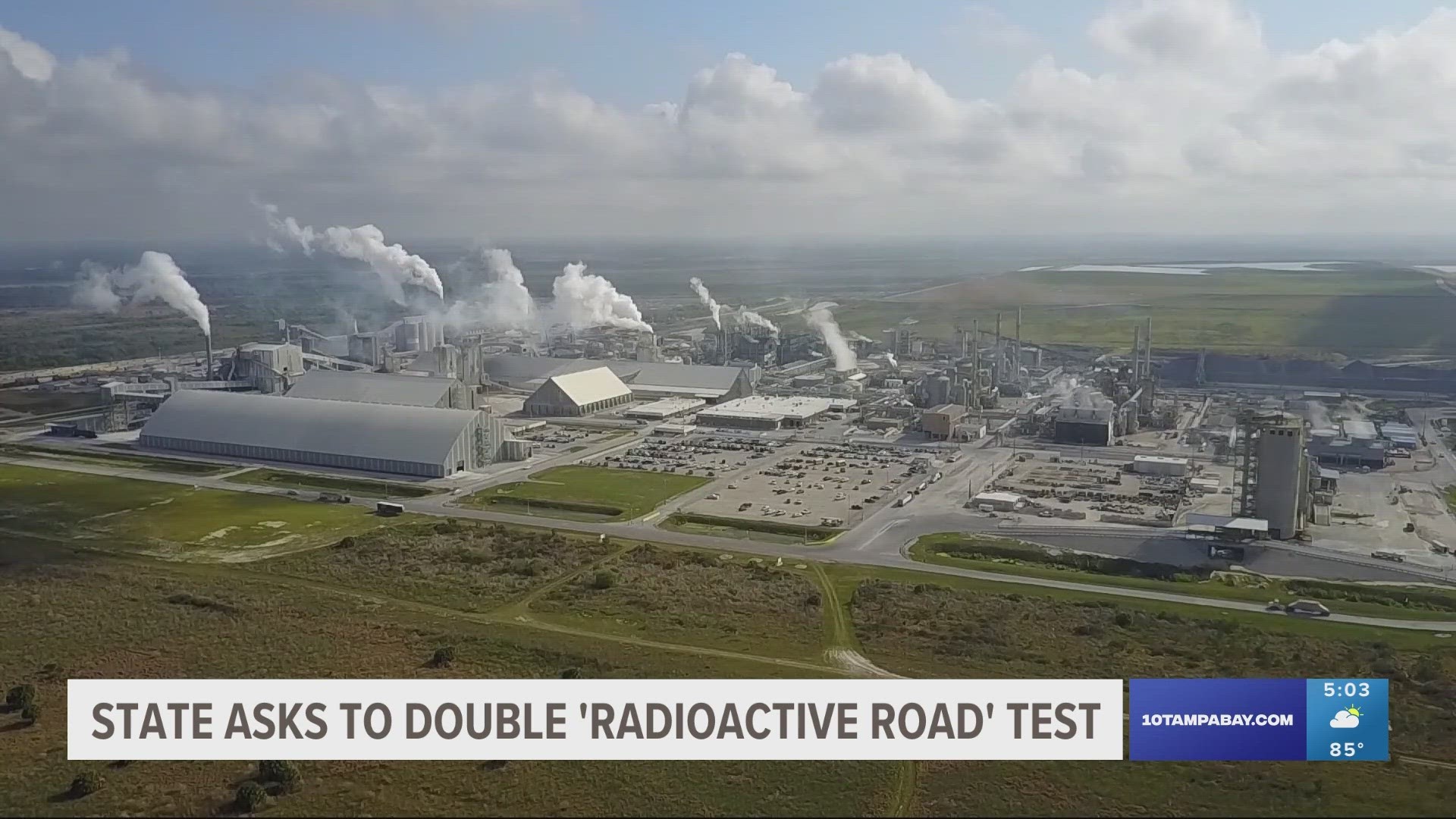TAMPA, Fla. — At the request of Florida’s Department of Transportation, Mosaic is now looking to more than double the size of its planned test of radioactive waste in road construction at a facility currently under increased scrutiny.
A revised request submitted by the Tampa fertilizer giant to the U.S. Environmental Protection Agency says Mosaic’s project team met with FDOT for input on the pilot project to study if phosphogypsum — the slightly radioactive byproduct from fertilizer production — is a viable ingredient in road construction.
Gov. Ron DeSantis signed a law in June directing FDOT to conduct and complete a study by April 1, 2024. It would need approval first from the EPA. FDOT previously told 10 Tampa Bay it had yet to submit an application to the federal agency, saying no projects were being considered at the time.
But with this revised request it now appears the state will rely on Mosaic to lead the pilot project at the company’s New Wales facility in Polk County, the same site where Mosaic is currently investigating a potential liner tear under a gypsum stack.
Initially Mosaic requested to use fewer than 500 tons of the waste in a test road. But FDOT now wants Mosaic to more than double the amount of phosphogypsum used to increase the length of the road by 2,000 feet, according to the revised request reviewed by 10 Tampa Bay.
“The result of these changes will be a more robust, useful data set,” it reads. “[But] will not pose additional risk.”
A coalition of dozens of state legislators, local mayors, commissioners and councilmembers sent a letter to the EPA in September calling on the federal agency to deny Mosaic’s attempts to conduct its own road construction study.
Critics have been sounding the alarm on the risks they say the proposal poses to health and the environment. But Mosaic and supporters see it as the answer to the question of what to do with the waste byproduct stored across the state, mostly in Hillsborough, Polk and Manatee counties.
“There are better ways to use this material, and at the same time remove gyp stacks from our landscape,” Mosaic spokesperson Jackie Barron previously told 10 Tampa Bay. “We want to move away from stacking like countries around the world have been doing for years.”
Currently, the EPA requires phosphogypsum to be stored in ”stacks” that resemble enormous ponds. Florida has 24, totaling about 1 billion tons of phosphogypsum, with 30 million new tons generated every year through the phosphate fertilizer mining industry.
The EPA regulates phosphogypsum because the material contains radium-226, a naturally occurring radioactive substance that produces radon gas, which is a hazardous air pollutant. Its use has been banned in road construction since 1992 – only briefly allowed in 2020 in government road construction projects.
“The use of phosphogypsum in road construction is not a solution to our gyp stack systems,” Ragan Whitlock with the Center for Biological Diversity previously told 10 Tampa Bay. “Whatever amount is used in road construction will only be a drop in that massive well.”

